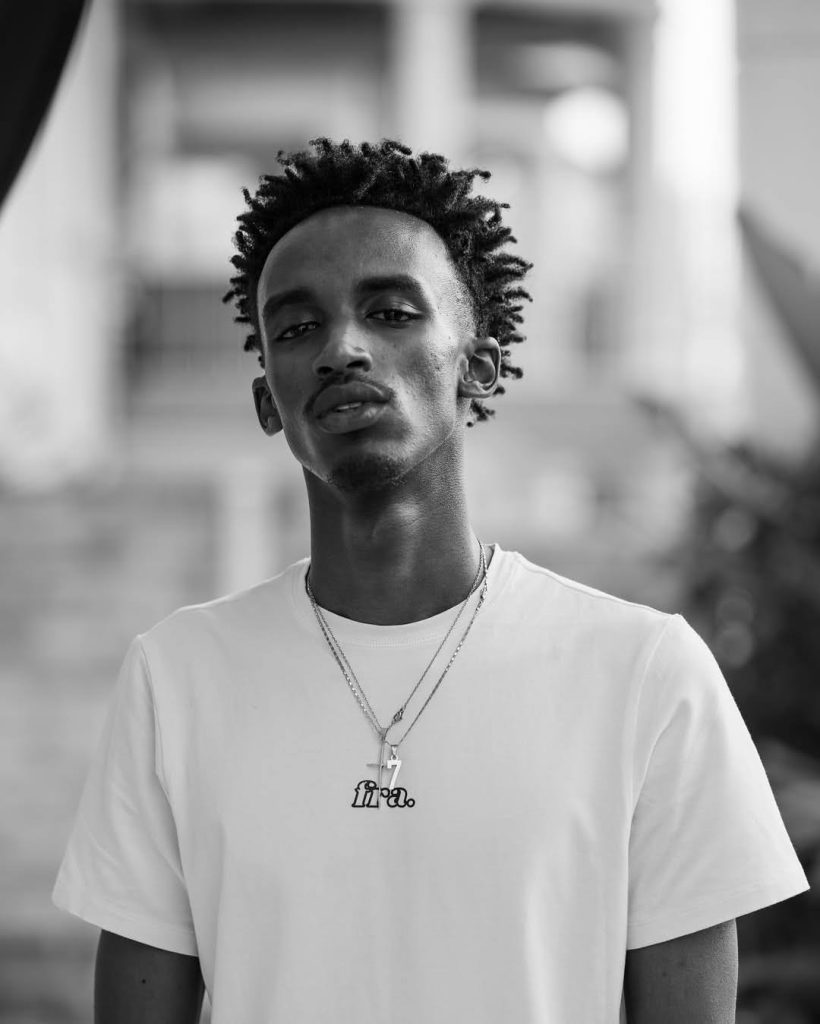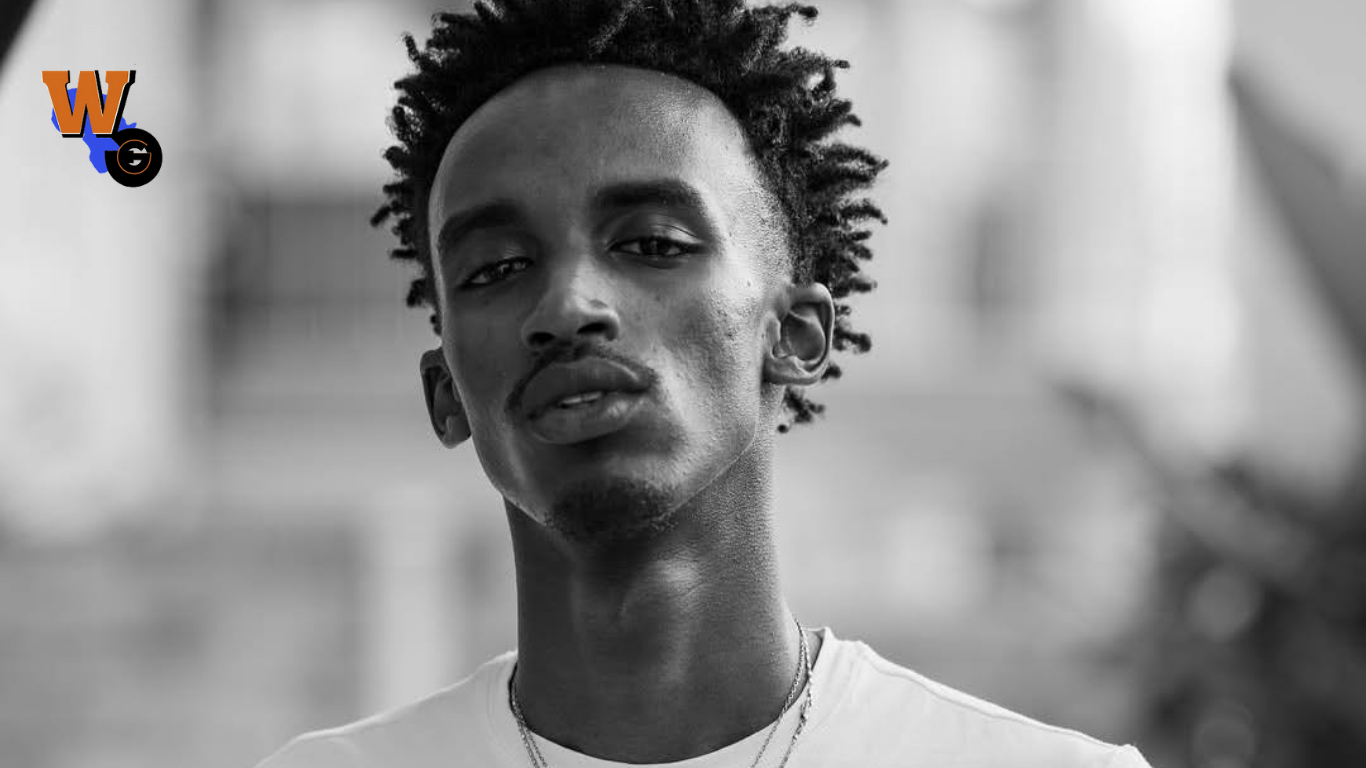Hip-hop isn’t just a global phenomenon, it’s a pulse that beats uniquely in every city, The Dice Kid is becoming one of the most compelling voices shaping the sound of Rwandan youth, just like Thanos gathering the infinity stones, we get to see him evolve into a greater form of artistry.

Hip-hop isn’t just a global phenomenon, it’s a pulse that beats uniquely in every city, every neighborhood, every youth movement. In Kigali, Rwanda, the genre has quietly evolved into its own vibrant form, merging global flows with local flavor through sub-genres like ‘Kinyatrap‘. While Rwanda’s rap scene remains underreported on the continental stage, it’s brimming with talent and at the forefront stands ‘The Dice Kid‘. With a bold delivery and fearless lyricism, he’s carved out his own lane since the release of his 2022 debut album Tune For The Kids. Now, as his star continues to rise, The Dice Kid is becoming one of the most compelling voices shaping the sound of Rwandan youth.
Born in Kampala, Uganda and raised in Kigali, Rwanda, a sense of identity has been a huge part of The Dice Kid’s rap personification. With influences from battle rap, The Dice Kid got inspiration from its wordplay and boisterous nature. Released in 2022, Tune For The Kids didn’t just introduce a new artist, it marked a shift in Rwanda’s sonic direction. ‘Tunes For The Kids‘ is a tightly focused six‑track statement piece, clocking in at just 17 minutes blending trap beats with introspective lyrics, the project touches on everything from survival and youth pressure to ambition in a changing Africa. Standout tracks like “Jitters” and “Dicect” quickly became underground favorites. The former created the perfect introduction to The Dice Kid, raw, unfiltered and authentic The project feels both introspective and confrontational, grappling with the complexities of growing up in a city that doesn’t always give young people the space to dream.
When it comes to rap, personality is a key trait in making it to the top of the food chain and the rapper understood the assignment.The Dice Kid coined his name to reflect life’s unpredictability and his journey while also serving a double entendre for the dice itself.., after the release of his debut EP, The Dice Kid teamed up with fellow country mate and rapper Kenny K-Shot for “Pele.” The Dice Kid delivers a compelling ode that blends raw swagger with soulful reflection. Over an ominous and gritty Drill production, in here, he channels the spirit of greatness, mirroring the legendary Brazilian footballer Pele’s legendary charisma and finesse. The song weaves together themes of ambition, legacy, and self-belief, as The Dice Kid uses Pele’s name as a metaphor for personal triumph. With a confident flow and introspective twists where one moment celebrates victory, the next confronts doubt he navigates the complexities of chasing excellence in a world where true legends are rare.
A year after making his debut with Tunes For The Kids, The Dice Kid made his return with Heartbreak Radio, a richly textured sophomore project that captured a young rapper navigating emotional maturity, artistic risk, and sonic reinvention. First making music at just 13 and recording his debut track at 15, Dice’s early passion translated into a confident and exploratory body of work. Across this EP, he doesn’t just rap, he reflects, experiments, and expands. Featuring a powerhouse of collaborators: Baby Kuu, Kivumbi King, Kid From Kigali, and E.T Ndahigwa, the EP is built like a constellation of voices orbiting a central idea: vulnerability. Whether it’s the sultry persona in “Over Bros,” where themes of desire and lust clash over a stripped-down Alte-infused beat, or the flirtatious bounce of “Taste,” laced with Kampala slang and Afro groove, the project balanced rawness with restraint. The Dice Kid moves between moods and genres with fluidity, experimenting with Amapiano rhythms, laid-back Afrobeats, and melancholic R&B, all without losing his lyrical grit. What makes ‘Heartbreak Radio‘ striking is not just its production or features, but the emotional clarity behind it. It’s an EP that feels lived-in, less concerned with chart-topping formulas and more focused on honest storytelling. Dice examines love, ambition, heartbreak, and ego with a newfound maturity, signaling that he’s no longer the kid from Kigali trying to make a name, he’s building a legacy. Where his debut was a statement of arrival, Heartbreak Radio was a declaration of evolution.
While Spotify exposes us to The Dice King’s catalogue, it is on YouTube that we find some of his hidden creative side that show us the dexterous nature of the rapper. His videos breathe new air of artistry and creativity that heavily align with his brand message, “creativity can flourish anywhere.” Just as a black smith takes time in crafting the perfect sword, The Dice Kid took his time in releasing his debut album which came out in 2024. Dubbed Infinity Pack, the rapper once again displayed perfect craftsmanship. Starting off with a 6 minute intro “Forever Sound,” featuring Delah Dube who laid over a perfect spoken word on human nature and its weakness. sees The Dice Kid stepping confidently into his sonic evolution. The six-track album, described by the artist himself as a “love letter to youthful cheerfulness and life’s wild ride,” balances emotional depth with uplifting energy.
Stylistically, Infinity Pack walks the line between trap-laced rap, introspective lyricism, and atmospheric R&B—each track feeling deliberate, yet open-ended. It’s a clear sign that Dice is pushing boundaries, pursuing not just growth, but a sense of musical infinity. Throughout the project, Dice flexes both introspection and swagger. On “Faith Ave.” featuring Sema Sole, he taps into spiritual storytelling, mixing sincere lyricism and melodic interplay. “Road Rage” ups the urgency with gritty verses over punchy percussion, while “Stargazer” offers a spacey, contemplative interlude, less about braggadocio, more about cosmic reflection. Midway, “Cashmere Flow” and “Hall of Mirrors” showcase his knack for blending smooth melodies with sharp flows, weaving personal truth into lush soundscapes. The title track, “Luckily Unlucky,” reflects on the paradoxes of ambition, blessing and curse, hope and challenge in true Dice Kid fashion. The album closes with “To Infinity and Beyond…,” where he once again features the cosmic Delah Dube, an affirmational anthem that underlines his forward-looking mindset and creative ambition.
With each release, we get to experience a greater form of The Dice Kid, just like Thanos gathering the infinity stones, we get to see him evolve into a greater form of artistry. With an intensive and broad catalogue, he understands the essence of collaboration and its necessity in ensuring the ecosystem is sustainable. He greatly shows this in his recent EP I Carry Versions Of Myself. The Dice Kid takes a fearless step forward, unzipping his soul across a tight six-track EP. Gone is the hard-edged bravado of his early rap days, this project leans into introspection and stylistic breadth, weaving moody Hip-hop rhythms with late-night Afrobeats and gentle R&B interludes. Opening with the hazy, melody-rich single “Clockwork,” he sets the tone: raw, reflective, and layered with emotional grit touching on questions often asked “Why are you rapping on Afrobeats?”. Throughout the EP, Dice toggles between self-doubt and self-affirmation on tracks like “g i v e or t a k e,” he faces his own inner fractures; on “Statement Piece,” he leans into a future with renewed purpose. Production is minimal yet textured: floating synth pads, warm bass, and crisp percussion support his agile flow and heartfelt delivery. By climaxing on “S A L T Y R A P P E R S,” it lands as a standout moment of defiant reflection within the EP – I Carry Versions of Myself. Opening with moody synths that immediately establish an introspective atmosphere, Dice wades into the emotional landscape with a controlled intensity. His delivery balances sharp honesty with melodic undertones, striking a contrast between vulnerability and grit.
Self dubbed as the leader of the new school Hip-hop, The Dice Kid is evidently stamping his prominence in every song he makes or appears on. Late last month he appeared on “Paperboy” from The Recipe by Kenyan born-American based producer An21Ke. The single, a blend of Afro-trap rhythms and sampled brass flourishes, on its collaborative dynamic. The Dice King’s verse injects the track with kinetic flow, combining punchy bars with melodic inflection—his delivery riding the beats like a rhythmic acrobat. In a world where many artists chase trends, The Dice Kid dares to chase truth. From his introspective beginnings on Tunes for the Kids to the experimental ambition of Infinity Pack, and the vulnerable self-exploration on I Carry Versions of Myself, he’s proven that evolution isn’t just part of his artistry, it is the artistry. Each project reveals a new layer, a new voice, a new version of a young man finding his footing in a rapidly changing world.
Whether holding his own on solo records or sparking standout moments on collaborations like “Paper Boy,” The Dice Kid’s gift lies in how seamlessly he blends lyrical honesty with sonic boldness. He’s not here to imitate anyone, he’s building a lane rooted in Kigali but headed everywhere. As his discography grows, so does his reach, depth, and conviction. For now, The Dice Kid may be carrying versions of himself but make no mistake: he’s becoming a blueprint for a generation of African artists ready to speak their truth, take creative risks, and sound like nobody but themselves.
Stream I Carry Versions Of Myself

